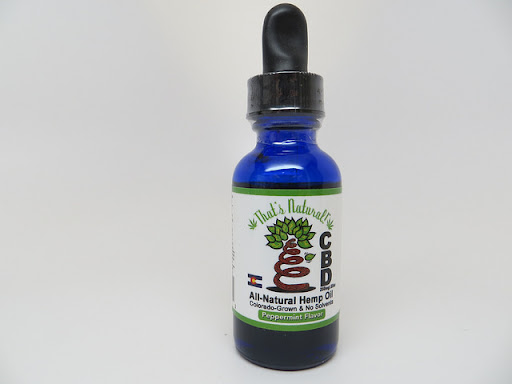Cannabidiol, commonly known as CBD, has garnered significant attention in recent years for its potential therapeutic benefits. As a compound found in the Hemp sativa plant, CBD is distinct from its more well-known counterpart, tetrahydrocannabinol (THC), primarily because it does not produce the psychoactive effects commonly associated with Hemp use. This post aims to explore the science behind CBD, shedding light on its effects, mechanisms, and potential health benefits.
What Is CBD?
CBD is one of over 100 cannabinoids identified in the Hemp sativa plant. Unlike THC, which is primarily responsible for the “high” associated with Hemp, CBD does not have psychoactive properties. Instead, it has been the subject of numerous studies exploring its potential therapeutic applications.
The Endocannabinoid System
To understand how CBD works, it’s essential to grasp the role of the endocannabinoid system (ECS). The ECS is a complex cell-signaling system found throughout the body, including the brain, immune system, and various organs. It comprises three main components:
- Endocannabinoids: Naturally occurring compounds similar to cannabinoids found in Hemp. The two primary endocannabinoids are anandamide and 2-arachidonoylglycerol (2-AG).
- Cannabinoid Receptors: These are found on the surface of cells and are primarily of two types: CB1 receptors, which are mainly located in the central nervous system, and CB2 receptors, which are more prevalent in the peripheral nervous system and immune cells.
- Enzymes: These are responsible for the synthesis and degradation of endocannabinoids. The main enzymes involved are fatty acid amide hydrolase (FAAH) and monoacylglycerol lipase (MAGL).
CBD interacts with the ECS, though not in the same way as THC. Rather than directly binding to CB1 or CB2 receptors, CBD influences the ECS indirectly. It has been shown to modulate receptor activity and inhibit the breakdown of endocannabinoids, thereby enhancing the overall functioning of the ECS.
How CBD Affects the Body
- Anti-Inflammatory Properties: One of the most notable effects of CBD is its anti-inflammatory action. Inflammation is a natural response to injury or infection, but chronic inflammation is associated with various health issues, including arthritis, cardiovascular disease, and certain cancers. Studies suggest that CBD can reduce inflammation by affecting various signaling pathways and immune responses, potentially offering relief for inflammatory conditions.
- Pain Relief: CBD’s interaction with the ECS also extends to pain management. Research indicates that CBD may modulate pain perception and alleviate chronic pain conditions by interacting with CB1 receptors and influencing neurotransmitter release. Its analgesic effects have been explored in various contexts, including neuropathic pain and pain associated with conditions like multiple sclerosis.
- Anxiety and Stress Reduction: Another area of interest is CBD’s potential to reduce anxiety and stress. Studies have shown that CBD may have anxiolytic (anxiety-reducing) effects, potentially benefiting individuals with generalized anxiety disorder, social anxiety disorder, and post-traumatic stress disorder (PTSD). By interacting with serotonin receptors and influencing neurotransmitter activity, CBD may help regulate mood and alleviate symptoms of anxiety.
- Neuroprotective Effects: CBD’s neuroprotective properties have garnered attention for their potential in treating neurological disorders. Research suggests that CBD may help protect against neurodegenerative diseases such as Alzheimer’s and Parkinson’s by reducing oxidative stress and inflammation. Its potential to enhance neurogenesis (the formation of new neurons) and modulate neurotransmitter systems makes it a promising candidate for further investigation in neurological research.
- Anti-Seizure Properties: Perhaps one of the most well-documented uses of CBD is in the treatment of epilepsy. Epidiolex, a CBD-based medication, has been approved by the FDA for treating certain types of epilepsy, including Lennox-Gastaut syndrome and Dravet syndrome. Clinical trials have demonstrated that CBD can significantly reduce the frequency and severity of seizures in individuals with these conditions.
Potential Side Effects and Considerations
While CBD is generally well-tolerated, it’s essential to consider potential side effects. Commonly reported effects include fatigue, dry mouth, changes in appetite, and diarrhea. Additionally, CBD can interact with certain medications, including blood thinners and drugs metabolized by the liver. It’s crucial for individuals considering CBD supplementation to consult with a healthcare professional, particularly if they are on other medications or have underlying health conditions.

Legal and Regulatory Landscape
The legal status of CBD varies by region, with regulations differing from one country or state to another. In many places, CBD derived from hemp (a variety of Hemp sativa with low THC content) is legal, while CBD from Hemp (which contains higher THC levels) may be restricted. It’s important to be aware of local regulations and ensure that CBD products are sourced from reputable manufacturers that comply with safety and quality standards.
Conclusion
CBD is a fascinating compound with a growing body of research supporting its potential therapeutic benefits. Its interaction with the endocannabinoid system, anti-inflammatory and analgesic properties, effects on anxiety and stress, neuroprotective potential, and use in epilepsy treatment underscore its versatility as a therapeutic agent. However, while the science behind CBD is promising, further research is needed to fully understand its mechanisms and optimize its therapeutic applications.
As interest in CBD continues to expand, it’s crucial for individuals to stay informed about the latest scientific findings and regulatory developments. By doing so, they can make informed decisions about incorporating CBD into their wellness routines and potentially benefit from its unique properties. Please take a moment to visit their page to discover intriguing facts about CBD.

